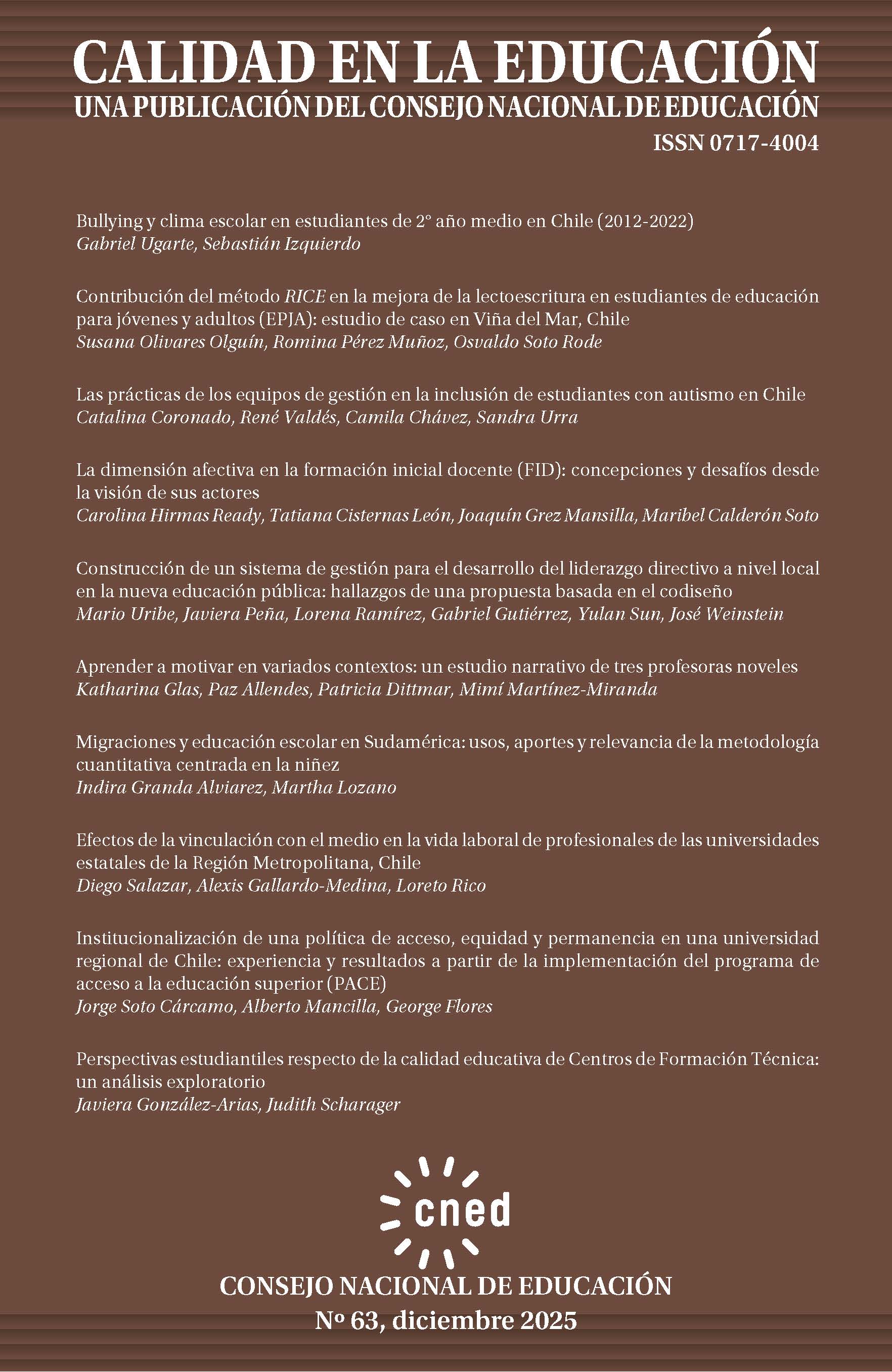Learning to Motivate in Varied Contexts: A Narrative Study of Three Novice Teachers
DOI:
https://doi.org/10.31619/caledu.n63.1474Keywords:
novice teachers, motivational strategies, relational agencyAbstract
The ability to create motivational learning environments is considered a key teacher competence, which, when developed early, can have a decisive impact on novice teachers’ determination to remain in the teaching profession during their first years. Using a narrative approach, this multiple case study explores the experiences of three beginning teachers of English in relation to their development of motivational strategies. From a perspective of personal and relational agency, the study seeks to establish which internal and external supports and obstacles are described by the teachers, including their “inner voices”, and those of students, colleagues, school leaders, and the educational system, when learning to foster their students’ motivation to learn. The disparity in the outcomes of the different processes of professional induction reveals the importance of teacher induction programs that provide novice teachers with confidence and autonomy, while also addressing student motivation in community and collaboration.
Downloads
Published
Issue
Section
License

This work is licensed under a Creative Commons Attribution 4.0 International License.
Authors retain their Copyright and only transfer a part of these to the journal, accepting the following conditions:
Authors keep their rights as authors and guarantee the right to the journal for the first publication of their work, which is simultaneously subject to the Creative Commons Attribution license allowing third parties to share the study accrediting the author and first publication in this journal.
Authors may adopt other non-exclusive license agreements for distribution of the version of the published work (e.g. inclusion in an institutional thematic file or publication in a monographic volume) accrediting initial publication in this journal.
Authors are allowed and recommended to share their work over the Internet (e.g. in institutional telematic files or their website) before and during the submission process, which may lead to interesting exchanges and increased citation of the published work. (See The effect of open access).

